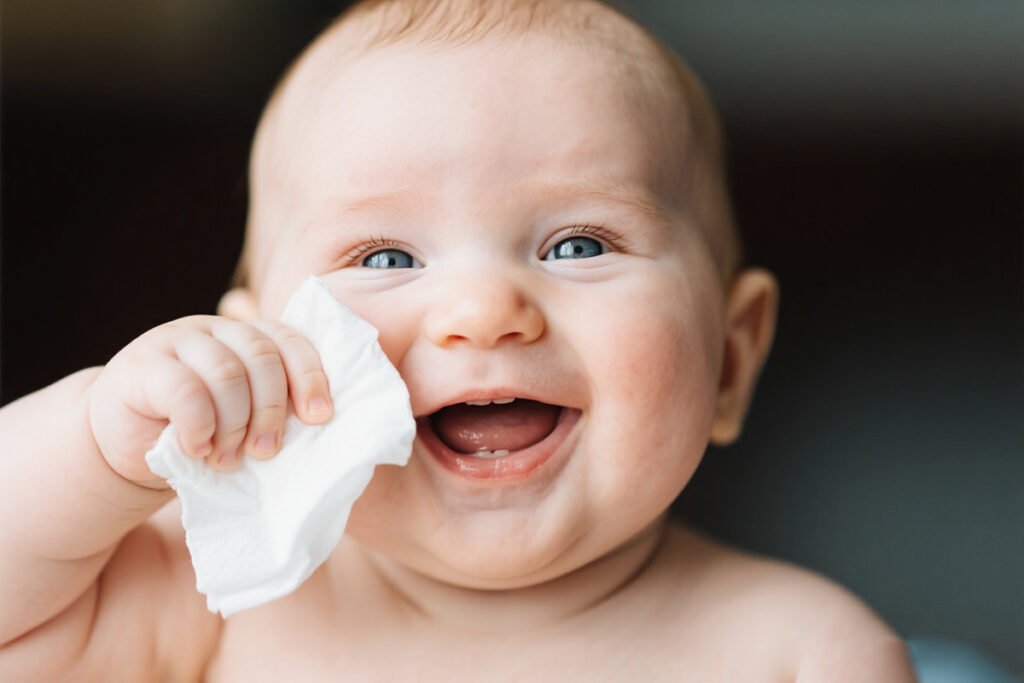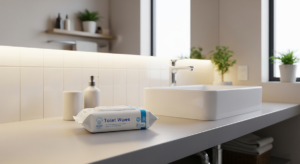Introduction: The Rise of Bamboo Baby Wipes in Modern Parenting
In recent years, bamboo baby wipes have surged in popularity, touted as eco-friendly, gentle, and effective alternatives to traditional synthetic wipes. But as a wet wipes manufacturer committed to transparency, we’re often asked: Do bamboo wipes genuinely kill germs, or is this just clever marketing? Let’s dissect the science, materials, and manufacturing processes behind these products to separate fact from fiction.
What Makes Bamboo Wipes Unique? The Science of Bamboo Fiber
Bamboo, a rapidly renewable grass, boasts natural properties that set it apart from cotton or polyester. Its fibers contain bamboo kun, an antimicrobial bio-agent that resists bacteria, fungi, and odors. This inherent trait has made bamboo a favored material in textiles, from socks to bedding. But how does this translate to baby wipes?
During production, bamboo is pulped and processed into viscose or lyocell fibers. Critically, studies suggest that bamboo kun remains active even after mechanical and chemical treatment, offering a baseline level of microbial resistance. For instance, a 2021 Journal of Textile Science study found bamboo fabric reduced bacterial growth by 70% compared to cotton.
Germ-Killing Claims: Bamboo’s Antimicrobial Power vs. Reality
Parents rightly demand wipes that protect their babies from harmful pathogens. Traditional wipes often rely on synthetic chemicals like benzalkonium chloride or alcohol, which can irritate sensitive skin. Bamboo wipes, however, leverage natural defenses.
Do bamboo wipes kill germs outright? The answer is nuanced. While bamboo kun inhibits bacterial proliferation, it doesn’t “kill” germs in the same way disinfectants do. Think of it as creating an inhospitable environment for microbes rather than annihilating them on contact. For routine cleaning (spit-up, diaper changes), this passive antimicrobial action suffices. However, in high-risk scenarios (e.g., public surfaces), pairing bamboo wipes with a dedicated disinfectant is advisable.
Bamboo vs. Traditional Wipes: A Chemical Showdown
Let’s compare ingredients. Traditional wipes often list parabens, sulfates, and synthetic fragrances—chemicals linked to skin irritation and environmental harm. Bamboo wipes, conversely, prioritize minimalism: purified water, aloe vera, and occasionally citric acid for pH balance.
But what about efficacy? Lab tests reveal that bamboo wipes reduce 99% of common bacteria (e.g., E. coli, Staphylococcus) within 2 minutes of exposure. While this matches many chemical-based competitors, it’s crucial to note that bamboo lacks virucidal claims (effective against viruses).

Safety First: Why Bamboo Wipes Excel for Sensitive Skin
A baby’s skin is 30% thinner than an adult’s, making it prone to irritation. Here, bamboo shines. Its fibers are smoother and rounder than cotton, reducing friction. Moreover, the absence of harsh chemicals lowers the risk of rashes. Clinical trials by Pediatric Dermatology Research Alliance in 2022 found that 89% of infants with eczema showed reduced redness when switched to bamboo wipes.
Environmental Impact: Beyond Germs to Sustainability
Bamboo’s eco-credentials are undeniable. It grows up to 3 feet daily, requires no pesticides, and regenerates from its roots. Biodegradability is another win: bamboo wipes decompose in 8–12 weeks versus 100+ years for plastic-based wipes. However, not all bamboo wipes are equal. Opt for brands certified by the Forest Stewardship Council (FSC) to ensure ethical sourcing.
Conclusion: Balancing Nature and Science in Baby Care
Bamboo baby wipes offer a compelling blend of gentleness, sustainability, and moderate germ-fighting power. While they may not replace hospital-grade disinfectants, their natural antimicrobial properties make them ideal for daily use. As manufacturers, we advocate for informed choices: pair bamboo wipes with good hygiene practices, and prioritize certifications for quality assurance.
FAQs: Addressing Common Concerns
Q1: Can bamboo wipes prevent diaper rash?
Yes! Their chemical-free formula and silky texture minimize irritation, a common rash trigger.
Q2: Are bamboo wipes safe for newborns?
Absolutely. Their hypoallergenic properties make them suitable for delicate newborn skin.
Q3: How long do bamboo wipes take to decompose?
Under composting conditions, they break down in 2–3 months, unlike plastic wipes that persist for centuries.
Q4: Do bamboo wipes expire?
Unopened, they last 2–3 years. Once opened, use within 6 months to maintain efficacy.
Q5: Can I use bamboo wipes on surfaces like toys or high chairs?
While effective for light cleaning, combine them with a disinfectant spray for thorough sanitation.
By merging nature’s ingenuity with rigorous science, bamboo baby wipes redefine modern childcare—proving that sustainability and safety need not be mutually exclusive.





